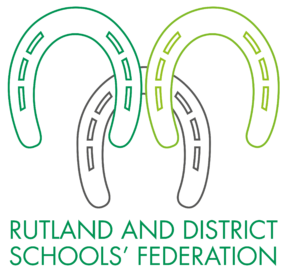Geography
We aim to inspire curiosity about the world and its people. Pupils will leave us with a good locational knowledge and an understanding of differences between physical and human geography. They will develop an appreciation of what makes ‘a place a place’ and are provided with opportunities to develop their fieldwork skills and understand how and why landscapes and environments change over time.
Within our creative curriculum, there are at least two geography-driven themes a year, with knowledge and understanding being applied in other themes. There is one geography whole-school theme a year with a Super Learning Day to bring our learning to life. In the EYFS, pupils study their home and school environment. In KS1, pupils learn more about our locality and contrast with other places both in the UK and further afield. Pupils develop a deeper knowledge of locations in KS2, learning about elements such as climate zones, land use and industry.
History
We aim to develop pupils’ curiosity about the past. Pupils will have opportunities to learn about how life has changed through history and use evaluative skills to compare the past in Britain and the wider world, helping pupils to better understand modern life. They will develop their understanding of how historians have learnt about the past and their ability to analyse sources effectively.
Within History, we teach substantive, disciplinary and chronological knowledge with one history whole-school theme a year. Within our creative curriculum, there are least two terms where history is the driver subject of a theme. History is interwoven through the topic curriculum to develop and apply knowledge, skills and understanding across subjects.
Design Technology
Design technology is an inspiring, rigorous and practical subject. Using creativity and imagination, pupils design and make products that solve real and relevant problems within a variety of contexts, considering their own and others’ needs, wants and values. They acquire a broad range of subject knowledge and draw on disciplines such as mathematics, science, engineering, computing and art. Pupils learn how to take risks, becoming resourceful, innovative, enterprising and capable citizens. Through the evaluation of past and present design and technology, they develop a critical understanding of its impact on daily life and the wider world. High-quality design technology education makes an essential contribution to the creativity, culture, wealth and well-being of the nation.
Art
We are committed to providing all children with learning opportunities to engage in art and design. The purpose of art and design education is to give pupils the skills, concepts and knowledge necessary for them to express their responses to ideas and experiences in a visual or tactile form. It fires their imagination and is a fundamental means of personal expression.
While it is essentially a practical subject, art should provide opportunities for reflection and, with increasing sensitivity, pupils should acquire the ability to make informed, critical responses to their own work and that of others. There is great pleasure to be derived from art and design and, through deeper understanding, pupils can gain access to cultural richness and diversity. The appreciation and enjoyment of the visual arts enriches all of our lives.
Modern Foreign Languages
We aim to develop pupils’ interest and confidence in a modern foreign language. Learning will provide pupils with a good knowledge of basic vocabulary and demonstrate the value of being able speak more than one language. Pupils are provided with opportunities to develop their oracy skills and language understanding from EYFS to Year 6, preparing pupils to continue their learning in secondary school. Our chosen language is French.
Religious Education
RE has an important contribution to make by providing a caring environment where children feel secure and able to express their views and beliefs. They are encouraged to value their own opinions, whilst developing respect and sensitivity for the views of others. An understanding of many faiths and beliefs is essential.
Discrete weekly lessons focus upon the RE curriculum objectives. The Rutland SACRE and Cornerstones ‘Love to Celebrate’ are followed, ensuring that all pupils covers the 6 main faiths (Christianity, Hinduism, Islam, Buddhism, Sikhism and Judaism) and are linked to key festivals and celebrations throughout the year. Comparisons are made between religions and with Humanist beliefs and values.
Computing
At Catmose Primary, we see computing as an exciting tool to aid autonomy and stimulate learning across the whole curriculum.
We have a carefully planned and controlled internet access policy which enables children to explore the world beyond their immediate surroundings.
The school is fully networked and children have access to PCs in each classroom, iPads and a computing suite. Children are also taught to use digital cameras, scanners and printers.
A clear curriculum is followed, with all teaching starting every year with a focus on online safety. Tasks and activities become increasingly difficult year on year and including coding skills.
PHSE and Citizenship
PSHE & Citizenship education is an important part of our curriculum and embedded in the life of the school. The Science and Personal, Social and Health Education, (PSHE) programmes support this. We follow the Twinkl PSHE whole school planning along with CWP for relationships education.
Themes taught and revisited during PSHE sessions are:
- Health and Wellbeing
- Safety First
- It’s my body
- Think Positive
- Living in the Wider World
- Aiming High
- One World
- Money Matters
- Diverse Britain
- Relationships
- Be Yourself
- TEAM
- VIPs
All children have access to filtered, cold, drinking water throughout the day. We have also incorporated healthy eating, healthy bodies and healthy lunchbox sessions into our curriculum. Children in Foundation Stage and Key Stage 1 receive one piece of free fruit each day under the Governments’ Free Fruit for Schools scheme.
Sex and Relationships Education
The Governors have agreed that Sex & Relationships Education (SRE) shall be treated naturally from a young age and our aim is to answer questions when they arise. Our Sex & Relationships curriculum begins, in an age appropriate way, from EYFS onwards using the CWP scheme of work. The scheme of work plan for each year group is shared at the start of the school year with parents and carers so they are aware of what will be discussed within relationships lessons.
Religion
We are not a faith school, but we do conduct assemblies which are fundamentally of a Christian nature. We also celebrate the festivals of other religions in order to foster enjoyment, empathy, understanding and tolerance of all faiths as well as those of no faith. We provide a curriculum which reflects the needs of all in our multi-cultural society whilst respecting the worth of each individual of whatever colour, race, creed or disability.
Every parent has the right to withdraw their child from Religious Education or worship on the grounds of conscience. Such requests should be made to the Head of School in writing.





